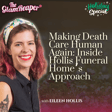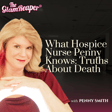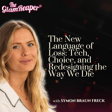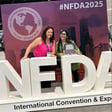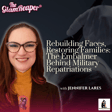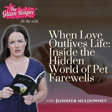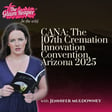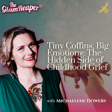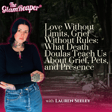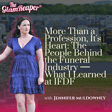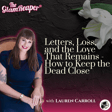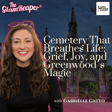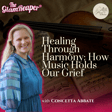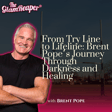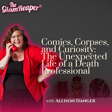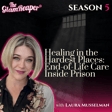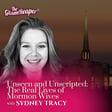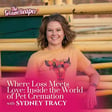
From Calling to Classroom Preparing the Next Generation in Funeral Care
What if the moment that shaped your life happened when you were only twelve years old?
In this inspiring conversation, Dr. Tanya Scotece shares her journey from the medical world to becoming a funeral director and embalmer, and now a professor leading the mortuary program at Miami Dade College. She opens up about how a single childhood experience at a wake sparked a fire that stayed with her for life, and how every step along the way became a lesson in courage and growth.
Tanya talks about wearing sparkles as a reminder of her why, the reality of serving families in a profession that offers no second chances, and the importance of inspiring students who will become the funeral directors of tomorrow.
This is more than a career story. It is about following a calling, finding light in unexpected places, and reminding us that it is never too late to learn and begin again.
Key Topics:
-Finding purpose from a childhood experience that shaped a lifelong calling
-Transitioning from the medical world to mortuary service with courage and faith
-The meaning behind sparkles and how small symbols can carry deep purpose
-Teaching and guiding students to serve families with compassion and integrity
-Standing for dignity and truth through expert witness work in funeral law
Quotes from the episode:
“This isn’t a do-over profession. You only have one chance to make a funeral right.”
-Tanya Scotece
“These are the funeral directors of tomorrow, and the more resources they have, the better.”
-Jennifer Muldowney
Timestamp:
[00:00] Podcast Intro
[00:41] Dr. T opens up about her journey from a long career in medicine to discovering her true calling in funeral service. She shares how pursuing advanced education led her to become a professor and program coordinator for mortuary science at Miami Dade College, where she now guides future leaders in the profession.
[13:34] Beyond the classroom, Dr. T has become a trusted expert witness in funeral law, standing beside families in times of grief and ensuring justice when wrongful practices occur. She reminds Jennifer that in this field ethics and integrity are everything because in death care there are no second chances.
[21:03] Reflecting on her shift from industry to academia, Dr. T speaks about the diverse students who choose mortuary school, the many paths available in funeral service, and the joy she finds in inspiring others to keep learning and proving it is never too late to chase new dreams.
[29:18] The conversation closes on a warm note as Tanya and Jennifer celebrate their bond. Together they share exciting opportunities for students such as celebrant training, memorial planning, and pet loss education while highlighting the power of collaboration, support, and nurturing the next generation of funeral directors
[35:49] Outro
Connect with Tanya Scotece:
LinkedIn: linkedin.com/in/tanya-scotece-ph-d-lfd-cfsp-🪄✨”dr-t”-a85a6226
Email: tanya8828@aol.com
Connect with Jennifer/The Glam Reaper on socials at:
Instagram - https://www.instagram.com/jennifermuldowney/
TikTok - https://www.tiktok.com/@therealglamreaper
YouTube - https://www.youtube.com/@TheGlamReaperMuldowney
LinkedIn - https://www.linkedin.com/in/jennifermuldowney/
Facebook Page - https://www.facebook.com/MuldowneyMemorials/
Email us - glamreaperpodcast@gmail.com
Shop Merch - https://the-glam-reaper.printify.me/products
Listen to The Glam Reaper Podcast on Apple Podcasts:
https://podcasts.apple.com/us/podcast/the-glam-reaper-podcast/id1572382989?i=1000525524145
The Glam Reaper® AMAZON Storefront - https://amzn.to/4hObpOh
